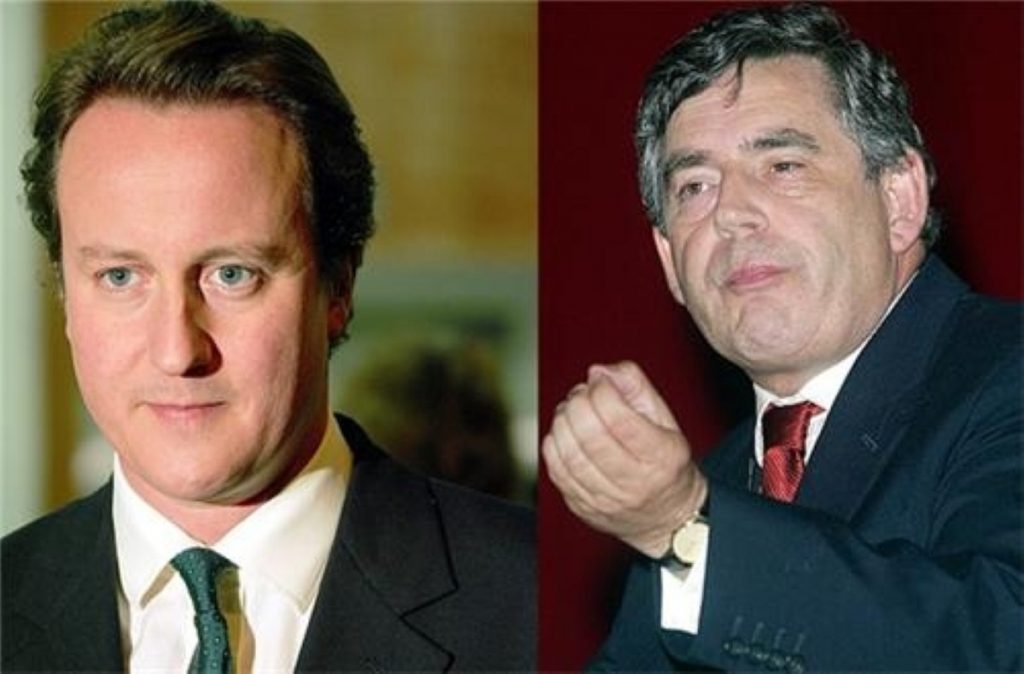Blair’s exit narrows gap on Tories
Gordon Brown received an early boost in his campaign to be Labour leader and prime minister, after a poll showed Labour’s approval ratings have closed on the Conservatives’ in the past month.
Despite shedding hundreds of seats – and control of Scotland – in this month’s elections, a Times/Populus poll shows Mr Brown is seen as a stronger leader than the Conservatives’ David Cameron.
Labour polled 33 per cent of voters’ support, up four points since mid-April. However, they have failed to take voters away from the Conservatives, who are static on 37 per cent. Instead the Liberal Democrats have fallen three per cent to 17 per cent.
More voters think key domestic issues will improve under Mr Brown rather than get worse. But, with his chancellorship dogged by accusations of a fondness of ‘stealth taxes’, nearly half of voters expect taxation to increase.


Despite having confidence in Mr Brown’s ability to run the country, voters are still more attracted to Mr Cameron. Asked to rate the leaders personally, the Tory leader jumps to 42 per cent to Brown’s 32 per cent. In the past month, Mr Brown has seen his personal rating improve two per cent but Mr Cameron has climbed ahead by one.
Mr Brown’s personal image has long been criticised as dour. Launching his leadership bid last week, the chancellor stressed his optimism, claiming he would be “thrilled” to help Britain unlock its potential.
Last night it became less likely that Mr Brown will move unchallenged into Number Ten. The former environment minister Michael Meacher confirmed he would withdraw from the leadership contest to enable fellow leftwing backbencher John McDonnell the best chance of securing 44 nominations to make it onto the ballot.
It is thought if all of Mr Meacher’s backers transfer their support to Mr McDonnell he will have sufficient support, but this will not be clear until the Labour party website publishes nominations at 6.30pm tonight. If he does not have 45 signatories, Mr McDonnell will have until 12.30pm on Thursday May 17th to lobby MPs.
The Brown campaign, despite welcoming a challenger, have ruled out the possibility of “lending” Mr McDonnell sufficient votes. The leftwing challenger called on MPs to support his candidacy even if they do not support his principles, in the interests of having a democratic selection process.
Launching his campaign yesterday, Mr McDonnell said: “We are launching an appeal to Labour MPs to nominate the only candidate that there is to ensure that there is an election for the leader of the Labour party.
“We are doing that not just because we want them to support our political platform, but also because if they don’t nominate, hundreds of thousands of party members and trade unionists will be denied the opportunity to vote for the leader. This is an issue of democracy.”
Despite often public tensions between the two would-be candidates, Mr McDonnell has said Mr Meacher will continue to play a role in his campaign. Mr Meacher has ruled out joining the deputy leadership contest.
Yesterday, Peter Hain, Hazel Blears and Harriet Harman confirmed have more than 45 backers, guaranteeing them a place on the deputy leadership ballot. Ms Blears is popular among the so-called Blairite camp, with nominations from John Reid, Tessa Jowell, Hilary Armstrong and John Hutton. Ms Harmon has been nominated by Mr Brown’s allies Alistair Darling and Douglas Alexander.
The chancellor is yet to publicly nominate a deputy. He had been linked to the international development secretary Hilary Benn, but it has been questioned whether Mr Benn can receive sufficient backing.
The Guardian claims the outgoing deputy leader John Prescott will today recommend Alan Johnson as his successor. The education secretary and former postman claims he wants to do for Gordon Brown what Mr Prescott did for the “quite posh” Mr Blair.
David Miliband, briefly seen as a serious challenger to Mr Brown, has said he will back Mr Johnson, describing him as the unity candidate.









